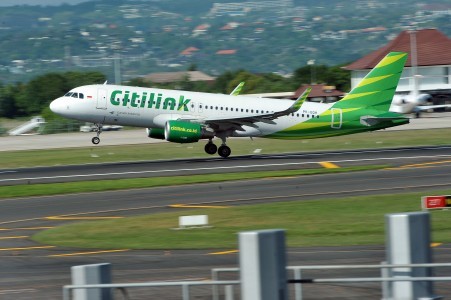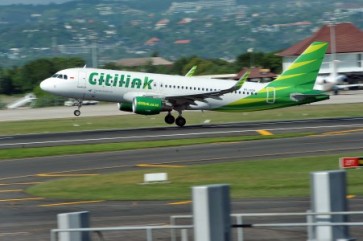Popular Reads
Top Results
Can't find what you're looking for?
View all search resultsPopular Reads
Top Results
Can't find what you're looking for?
View all search resultsRationalization behind domestic ticket price policy
Theoretically speaking, ticket prices did decline, but the policy was more a pseudo-solution because it does not solve the real cause of the problem. #opinion
Change text size
Gift Premium Articles
to Anyone
T
he government has made various efforts to reduce domestic airfares, from attempting to lower the price ceiling by 12 to 16 percent in May, to asking low-cost carriers (LCC) to reduce ticket prices for certain routes during a certain period. The latter policy only came into force on July 11 — slightly overdue from the original deadline of July 1.
The government’s agreement with LCCs to reduce ticket prices by 50 percent from the price ceiling is rather unusual. Only Citilink and Lion Air have agreed to adhere to the policy. The provision applies only to particular flights boarding on Tuesday, Thursday and Saturday at between 10 a.m. and 2 p.m.
The number of routes is limited and the policy only applies to routes serviced by jet aircraft. Since many regional routes are also served by propeller planes, this policy feels discriminatory and unreliable in guaranteeing regional connectivity. Propeller planes’ operational costs are higher than those of jets, which is at odds with the fact there are still many regions that have a very low per capita income.
It should be noted that airlines typically reduce airfares for flights leaving outside of rush hour, a common business strategy even before the latest policy was issued. It is no wonder that the chairman of the Indonesian Consumers Foundation described the policy as a mere marketing gimmick.
Theoretically speaking, ticket prices did decline, but the policy was more a pseudo-solution because it does not solve the real cause of the problem. It does little to assist government and corporate employees pursuing productive hours — some might even have additional expenditures. To illustrate, in mid-June, the Riau administration asked for permission from the Office of the Coordinating Economic Minister to arrange an official trip through Kuala Lumpur or Singapore.
The proposal was meant to meet regional budget restrictions because apparently, it was cheaper to fly to Jakarta through the two hubs rather than take a direct domestic flight. If the Riau administration actually had to provide additional accommodation expenses to compensate the high ticket price, it would mean that the price reduction policy is not effective and does not achieve the targeted purpose.
The policy for lowering the price ceiling in May made matters worse. Airline revenues became increasingly smaller, making it harder to subsidize other routes, especially those served by propeller aircrafts. As a result, some airlines have closed numerous routes that are considered uneconomical.


















